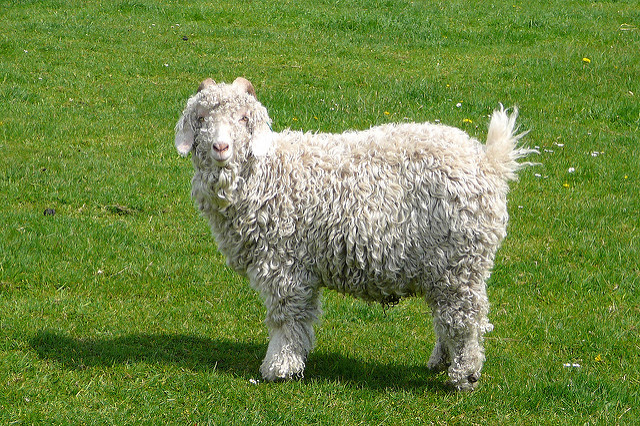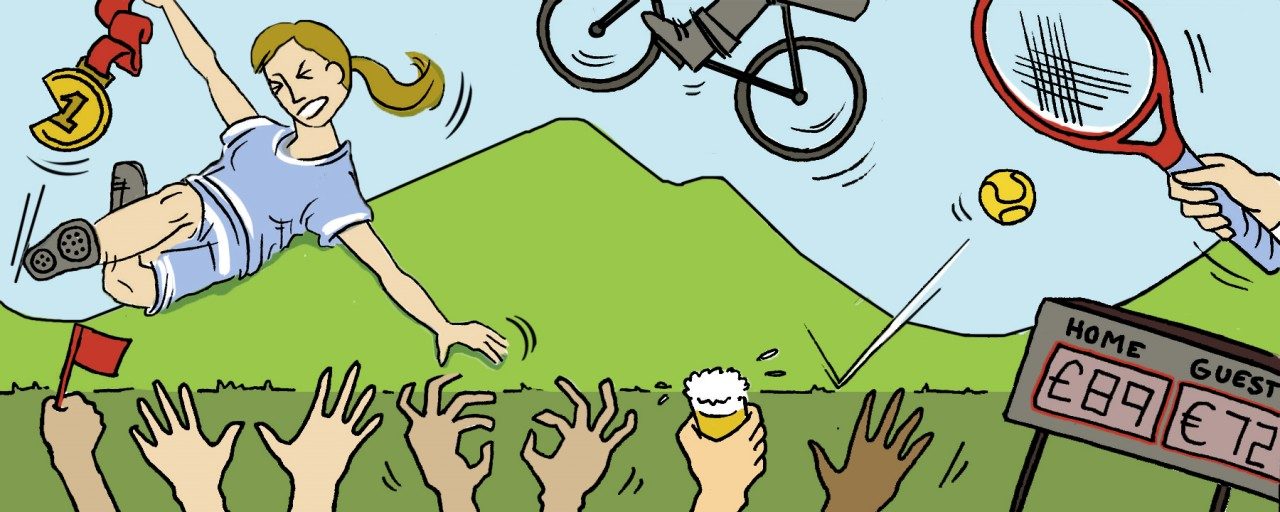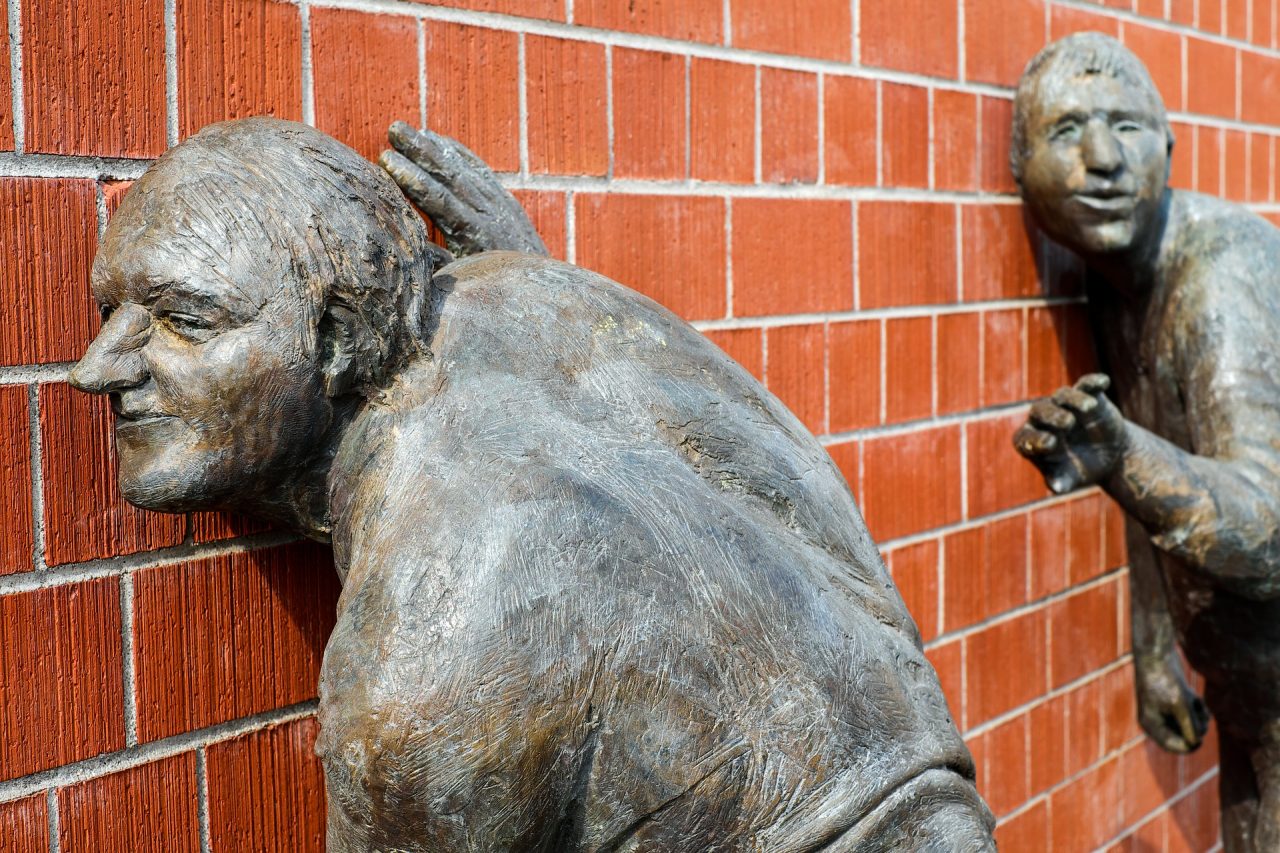
Latest news headlines: what’s going on with ‘The Greatest Dancer’, free funerals and goat rights?
So... what just happened? (28/1/19 - 3/2/19)

British gov plans to punish people by blocking their Instagram
The sanction is part of a new plan to reduce knife crime among British gangs.
There were 40,417 UK crimes involving knives in 2018, the highest it’s been in seven years. Home Secretary Sajid Javid thinks he can fix that by slapping sanctions on those suspected of involvement, even if they’re never caught with a blade. These peeps won’t be allowed to visit certain streets (where gangs often fight), use social media (where gangs often start fights) or speak to known gang members. Rule-breakers go to jail.
Lots of crime is usually bad for the economy. People get scared, negatively impacting their health and happiness. They don’t want to work, live or invest in areas with high crime rates, meaning less businesses are around to serve the community, and those that are struggle to hire.
But Javid’s plan strike many as morally icky. Not only does it restrict the freedoms of people who aren’t guilty of anything, it also seems likely to send more people to prison. That has economic costs: a higher bill for the taxpayer, reduced employment opportunities for the convicted, and financial burdens on the convicted person’s dependents (paying court fees, losing a breadwinner etc.)
Read our explainer on: legal institutions

Should taxpayers pay for children’s funerals?
The UK Prime Minister said yes, but hasn’t yet followed through on her promise.
Last March, PM Theresa May said that that parents who lose a child under 18 years of age won’t have to pay any funeral costs. Their bill will instead be paid for by the government, which gets its money through the taxes people in Britain pay on everything from their wages to the food they buy in supermarkets.
Because funerals are expensive (the average one costs £4,078) they can put a lot of financial pressure on families who are already struggling and emotionally distressed. But some people feel that the £10 million the government would spend subbing child funerals each year could be better spent on something else. Or that it’s unfair for the state to pay for some people’s funerals and not others.
The UK government does pay for a no-frills adult funeral if the person who died (a) left no money behind, (b) has no family or friends who can pay. But the Children’s Funeral Fund is available for all kids, meaning rich parents who lose a child get the same amount of government help as poor ones.
Read our explainer on: government budgets

It’ll be all-white on the night
Letting the audience pick the competitors for new TV show ‘The Greatest Dancer’ resulted in just one all-BAME act getting through.
How do you pick the best dancers for your show? Ask dance experts which auditionees have the most potential? Look for technical flawlessness? Or hand a bunch of audience members a big ‘like’ button and select any act that turns more than three-quarters of them on?
‘The Greatest Dancer’ went for option C. Unfortunately, that ended up with its British audience looking a bit racist. They rejected most BAME (black and minority ethnic) acts, including ones the dance-expert judges raved about, but put through white dancers who mucked up.
Implicit racism (the BBC, which owns the show, was quick to point out that the audience themselves was very “diverse”) is one of the reasons that your economic chances can differ depending on your race. When it’s harder for BAME people to succeed than white people, less BAME people will get access to the perks of success - in this case, the exposure and fanbases which can propel wannabe-dancers to fame and significantly up their earnings.
Read our explainer on: identity and economic chances

Mohair today, gone tomorrow
The Royal Collection says it’ll stop selling teddies made of goat wool after protests from animal-rights movements.
The Royal Collection connects commoners with the British Royal Family through events and selling them must-have items like… wooden spoons adorned with the royal crest (yay?). It also used to sell a teddy bear made of goats’ mohair wool, until animal-rights group Peta said that was bang out of order to goats. The Royal Collection agreed to ditch the fabric completely.
That might sound kinda odd, considering the Royal Family just spent Boxing Day blasting birds to smithereens with shotguns. But as veganism gets more and more popular, more and more businesses are willing to change their products to tap into the trend. After all, it’s easier to make lots of profit if lots of people are into what you’re selling. And if enough businesses start ditching animal products for good, that’s gonna mean a pretty big shift in the way our economy looks.
Read our explainer on: consumer choice theory

Economy Explains: What is behavioural economics?
Behavioural economics is is a branch of economics that conducts psychological experiments to understand how people make economic decisions.
One interesting finding from behavioural economics is that the choices we make are shaped in large part by how they are presented to us, rather than by what they actually are.
Read the full Economy Explains: Behavioural Economics

Economy Explores: Sport
This is a big weekend for sports fans, with the rugby Six Nations starting today and the American football Superbowl on Sunday...
... so we figured this was a good time to delve into all things sport, from skateboarding to football to ballet. (With a little bit of economics in there too ofc!)
Dive into our full Economy Explores: Sport

Overheard on the internets...
"I've been called a champagne socialist because I’ve been offered a scholarship to Eton College. [...] My free school meals don’t serve champagne.”
Just 'cos some of us like numbers...
85m ...how many fewer bus journeys Brits took in 2018 compared to 2017. After that creepy-ass scene in Luther, we’re not surprised.
85% ...the maximum amount of NHS hospital beds that should be occupied at one time to avoid a bed-shortage crisis.
2019 ...the year Australia (but not the UK, US or Canada) managed to have women in 30 percent of big-company director positions.
4 ...our lucky number (jk, just checking you’re still reading).



